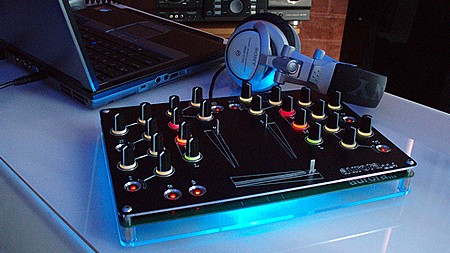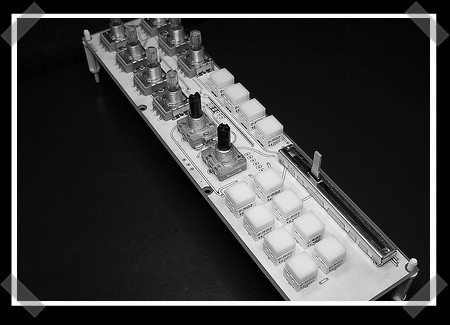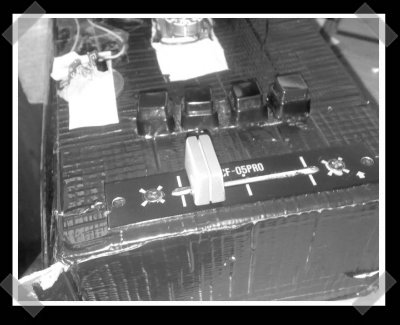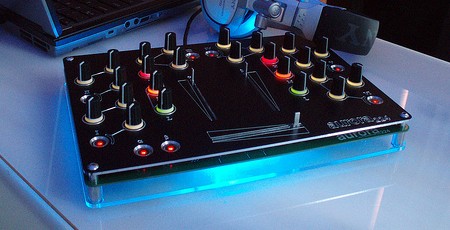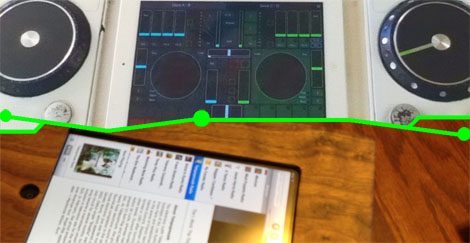
There’s a word – synchronicity – to describe two disparate events that occur together in a meaningful way. We see this a lot in the Hackaday tip line; two people send in somewhat similar hacks solving similar problems in similar ways nearly simultaneously. Here’s two builds by [Bryce] and [spektakx] that hit our inbox within minutes of each other that both implement existing interfaces with iPads.
iPad turntable controller
[spektakx] sent in an iPad powered DJ MIDI controller he built as a prototype to test out the size, orientation and layout for an upcoming build. The turntable controllers are simple USB affairs made to jog and scratch records digitally. Although [spektakx] admits it’s a little unfinished, it’s still just a prototype. Also, he can use a Windows 7 tablet laptop for ‘more suited’ hardware. Check out [spektakx]’ video demo after the break.
an iPad cash register
[Hacktheory] found [Bryce]’s Flickr photolog of a DIY ‘Square’ cash register. The electronics part of this build is practically non-existent; it’s just an iPad with a credit card readers that plugs into the headphone jack. Yes, we just saw these ‘Square’ credit card readers this last week. The fabrication portion of this build is incredible – [Bryce] has a few wonderful pieces of walnut there, and did an exceptional job with the wood work. It’s probably not well suited to high-volume retail, but we couldn’t think of a better cash register for a boutique shop.

